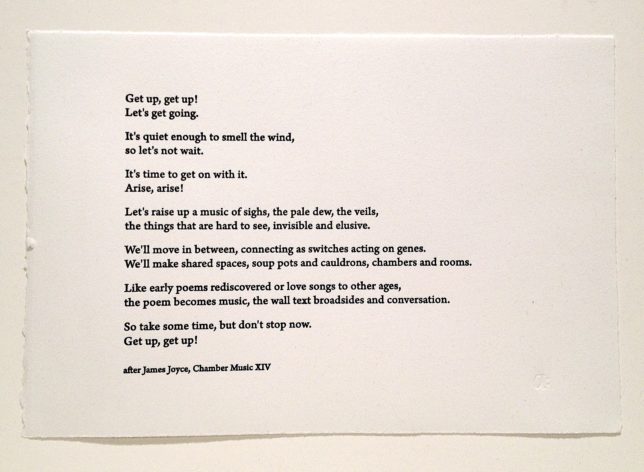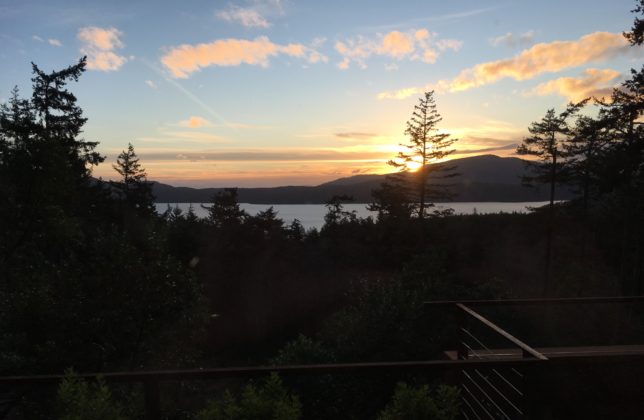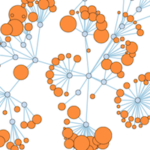The principle of [the United States] seems to be to make private interests harmonize with the general interest. A sort of refined and intelligent selfishness seems to be the pivot on which the whole machine turns…. But up to what extent can the two principles of individual well-being and the general good in fact be merged?…This is something which only the future will show.
— Alexis de Tocqueville, 1831

Introduction
There’s a high likelihood Tocqueville’s question will never be settled definitively – not now, nearly 200 years into Toqueville’s “future,” and not two hundred years into our future. I can’t imagine a time when one group of human beings won’t be tugging another toward one of these principles and away from the other. It’s a tension that’s probably best not settled, one we should constantly question and struggle to answer in new ways.
I’ve borrowed the Toqueville quote from “Civil Society and Its Discontents,” an article by Bruce Sievers published in 2004 by Grantmakers in the Arts.1 At the time, I was co-editor of GIA’s periodical, the GIA Reader, and had the opportunity to work with Bruce on this and other pieces for the Reader. Working with him was the best introduction I could have had to the crucial role that civil society plays, or should play, in our world. Civil society, the common good, the commons, and many concepts and understandings spinning around these ideas continue to play a central role in my thinking.
The essays that Bruce wrote for GIA were among the precursors to his 2010 book, Civil Society, Philanthropy and the Fate of the Commons.2 As it was being published, the book provided the structure for a series of five conversations I organized with friends and colleagues Wier Harman, Carol Lewis, and Ted Lord. In mid-2010 after the five sessions were over, I considered “serializing” the notes so the ideas we wrestled with in conversation could be shared with others.
To try out my plan, I drafted a few pieces intended to provide a general context, without discussing the conversations. That would come next, I thought. I only got as far as three pieces before being swept up in other work, which has been a common fate of my writing over the years. Recently, I’ve gone back to the few I wrote and to my notes from the conversations themselves, knowing that a greater understanding of civil society is at least as important now as it was then. One piece follows here, and a second, ”Can we stay in the same room?” was posted on this site earlier.
January 2018

Creative Tension
Individual interests vs. the common good

January 2011
One evening in the fall 2004, a notice slid under my apartment’s front door notifying residents that the board of my condo association had just fired the building’s live-in managers, a couple who had shared responsibility for managing and maintaining this 80-unit residential building for about ten years. They were already out of a job and a home. That day, the notice read, had been their last.
In addition, the board had decided to change the association’s long-time practice of hiring resident managers. Instead we would now contract with a commercial property management firm and, in fact, a particular company had already been selected. A central argument for the change seemed to be, in essence, “keeping up with the Joneses.” Other condominiums in our neighborhood used commercial firms; resident managers were simply unprofessional, the board’s argument went, and was probably devaluing our individual investments.
Many of us who were owners were stunned. The managers had received no notice and the board gave them ten days to move out. (Activist owners managed to extend the allotted time to a month.)
Rancor and strife erupted and prevailed openly for months. Charges of secrecy, calls for due process, accusations of inappropriate use of power were countered by claims that it was all for our own good and, besides, it was a personnel matter that had to be confidential. Concerns for maintaining the value of the property clashed with concerns for open process and justice for the managers as human beings. In one way of understanding it, upper floors (with larger apartments, higher property values, and votes that counted more) seemed pitted against we on the lower floors. Some decried the loss of democratic process and of community and shared values. The imbroglio was intense and exhausting, and the bruises continue under the surface today, six years later.
This very local turmoil in my building played out in tandem with the 2004 national presidential campaign, then in high gear – on the radio, TV, and internet, in newspapers and in discussions at work and among friends. Angry debates about the Iraq War (barely a year old), the tax cuts of 2001 and 2003, the PATRIOT Act, and the voting controversies and irregularities of four years earlier – all colored the campaigns. Strident claims seemed barely connected to fact.
For a few days, with the Republican convention on my kitchen radio and meetings of a rump group of disaffected condo owners in the apartment next door, I retreated to my home office to meet a publishing deadline. At the time, I was executive director of Grantmakers in the Arts and co-editor of its periodical, the GIA Reader. Much of my role as editor was essentially interactive, communicating with writers and thinkers whose ideas subsequently reached GIA members and others through the publication. Aspects of the editorial work, though, required concentration and focus; the space and time for this was often easier to find outside the office.
One of the essays I worked on at home that fall, with the backdrop of both local and national dramas, was “Civil Society and Its Discontents: Philanthropy’s Civic Mission,” by Bruce Sievers.
Sievers’ piece opened with a quote from Alexis de Tocqueville (Sing Sing, 1831):
The principle of the republics of antiquity was to sacrifice private interests to the general good. In that sense one could say that they were virtuous. The principle of [the United States] seems to be to make private interests harmonize with the general interest. A sort of refined and intelligent selfishness seems to be the pivot on which the whole machine turns…. But up to what extent can the two principles of individual well-being and the general good in fact be merged?…This is something which only the future will show.
Later in the essay, Sievers describes what characterizes civil society and distinguishes it from both commerce and government:
[The world] we inhabit when we are acting in civil society is very different from those of other spheres of social life: the economy and the state. Each of these three worlds has its set of goals, expectations, norms, and incentives. In the economic world, we think and act as producers, consumers, and investors; in the political world, we play the roles of voters, lawmakers, and public administrators. In the world of civil society, we become community members, volunteers, and civic actors.
What particularly characterizes [civil society] is pluralism, distinctive social values, and a creative tension between individual interests and the commons. It is the sphere in which private visions of the public good play out in interaction with one another to shape the social agenda. Participating in civil society involves the pursuit of a mixture of public and private goals, of social problem-solving and individual expression.
Yikes! “Creative tension” hardly states it strongly enough. The words in the essay and the worlds I inhabited beyond my desk began to get mixed up with each other. Sievers, for instance, referred to looking within civil society “for the sources of a familiar institutional gridlock in which it becomes easy to obstruct actions aimed at achieving public purposes but extremely difficult to take positive steps forward to accomplish them.” It doesn’t take more of an institution than a small condo association to see that gridlock in action.
Later in the essay Sievers writes:
It is…the erosion of essential civic values – the steep decline in public trust, diminishing belief in the efficacy of civic action, increasing fractiousness of public debate, and diminishing bonds of common civic identity – that poses the fundamental threat and that prevents the solution of large social problems. We are back to Tocqueville and his worry about reconciling the principles of “individual well-being and the general good” in the American experiment.
Although Sievers focused on the specific role that philanthropy can play in strengthening civil society, I paid as much attention to what the essay taught me about democracy and the principles of civil society. I was struck by the thought that somehow these abstractly philosophical ideas had an essential relevance to both the immediately local and the far-reaching national debates unfolding around me. But it was as though each of the three worlds – the local, national, and theoretical – existed on parallel planes that didn’t overlap in ways I could get my mind around in a practical way.
Big ideas – like those of Tocqueville and Sievers on civil society – help me adjust my understanding of what happens on the ground where I live, but they leave me unsettled until I figure out how to adjust my actions in response to them.

Coda
The “erosion of essential civic values” that Sievers mentions seems to be occurring at an ever faster rate. Daily…hourly…we are urged to write this congressman, show up for that action, resist another dreadful bill, proposed legislation, or executive decision. Given the rise of ever-more powerful individual interests, how do we also begin to shore up public trust, dilute the fractiousness of our public debate, and strengthen a common sense of civic identity? Without it, we stand to lose the creative tension between private interests and the general good that Tocqueville called the “pivot on which the whole machine turns.”
January 2018
Notes
1 “Civil Society and its Discontents,” Bruce R. Sievers, GIA Reader, Autumn 2004.
2 Civil Society, Philanthropy and the Fate of the Commons, Bruce R. Sievers, University Press of New England, 2010.



![]()















